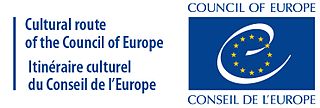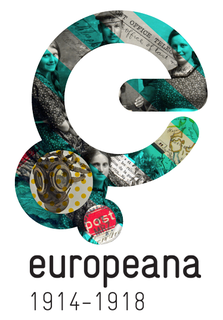 W
WEuropean Union culture policies aim to address and promote the cultural dimension of European integration through relevant legislation and government funding. These policies support the development of cultural activity, education or research conducted by private companies, NGO's and individual initiatives based in the EU working in the fields of cinema and audiovisual, publishing, music and crafts.
 W
WA Culture Route of the Council of Europe, sometimes referred to as a European Cultural Route, is a certification awarded by the Council of Europe to networks promoting the European shared culture, history and memory. These routes must also match some fundamental values promoted by the Council of Europe such as democracy, human rights and intercultural exchanges in the framework of cultural tourism.
 W
WA European Capital of Culture is a city designated by the European Union (EU) for a period of one calendar year during which it organises a series of cultural events with a strong pan-European dimension. Being a European Capital of Culture can be an opportunity for a city to generate considerable cultural, social and economic benefits and it can help foster urban regeneration, change the city's image and raise its visibility and profile on an international scale. Multiple cities can be a European Capital of Culture simultaneously.
 W
WThe European Institute of Cultural Routes is a non-profit association based in Luxembourg whose aim is to help the Council of Europe, as a technical body, in the establishment of European Cultural Routes.
 W
WThe European Library is an Internet service that allows access to the resources of 49 European national libraries and an increasing number of research libraries. Searching is free and delivers metadata records as well as digital objects, mostly free of charge. The objects come from institutions located in countries which are members of the Council of Europe and range from catalogue records to full-text books, magazines, journals and audio recordings. Over 200 million records are searchable, including 24 million pages of full-text content and more than 7 million digital objects. Thirty five different languages are represented among the searchable objects.
 W
WThe European Union National Institutes for Culture (EUNIC) is a network of European national institutes of culture and national bodies engaged in cultural and related activities beyond their national borders. EUNIC brings together organisations from all 27 EU member states and adds value through its global network of clusters. By pooling together the resources and expertise of its members and carrying out joint work on common areas of interest, EUNIC is a recognized partner of the EU and its stakeholders in defining and implementing European policy on culture inside and outside the EU.
 W
WEuropeana is a web portal created by the European Union containing digitised cultural heritage collections of more than 3,000 institutions across Europe. It includes records of over 50 million cultural and scientific artefacts, brought together on a single platform and presented in a variety of ways relevant to modern users. The prototype for Europeana was the European Digital Library Network (EDLnet), launched in 2008.
 W
WEuropeana 1914–1918 is a major project to digitise and publish primary and secondary historical sources on the First World War. It is coordinated by Europeana, as part of a broader program to digitise European cultural heritage.
 W
WFireworks policy in the European Union is aimed at harmonising and standardising the EU member states' policies on the regulation of production, transportation, sale, consumption and overall safety of fireworks across the European Union.
 W
WMarseille-Provence 2013 or MP2013 was the year-long series of cultural events that took place in Marseille, France and the surrounding area to celebrate the territory's designation as the European Capital of Culture for 2013. In total, there were more than 900 different cultural events that attracted more 11 million visits. Marseille-Provence 2013 had an operating budget of approximately 100 million euros and more than 600 million euros in new cultural infrastructure was unveiled in 2013 including the MuCEM designed by Rudy Ricciotti and the Villa Méditerranée conference center designed by Stefano Boeri. MP2013 was a key part of a larger, decades-long, multibillion-dollar development effort to revitalize the city.
 W
WThe MEDIA sub-programme of Creative Europe or simply Creative Europe MEDIA is designed to support the European film and audiovisual industries. It provides support for the development, promotion and distribution of European works within Europe and beyond. MEDIA has progressed through several phases: the Pilot Phase ; MEDIA 95 ; MEDIA II ; MEDIA Plus ; MEDIA 2007 ; Creative Europe MEDIA Programme.
 W
WThe European Union plays a minor and mostly indirect policy role in sport, because (a) sport is normally considered to be outside the competences conferred by the member states to the European Union and (b) sport is in general organised internally, on a European continental level, or globally.
 W
WThe Union of European Theatres is an alliance of European public theatres. It serves to promote European integration through cultural interaction. It does intensive transnational theatre work comprising over ten thousand performances and reaching three million viewers each season. The UTE presents festivals, exhibitions, workshops, theatre school collaborations, colloquiums and co-productions throughout Europe. The Union des Théâtres de l'Europe has over 40 members, 20 of which are major national and municipal theatres from 17 countries.